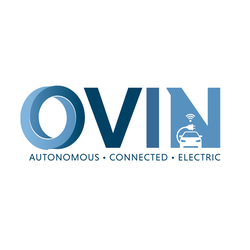
Tax refund for power takeoff equipment (XE8)
At a glance
- No Condition
- Open Date : November 14, 2019
- Construction
- Manufacturing
- Transportation and warehousing
- Ontario
- For-profit business
- Sole proprietorship
- All revenue ranges
- All organization sizes
- All groups
Overview
Get a refund on tax paid for fuel to operate auxiliary equipment such as cement mixers, aerial buckets, lifts and cranes or refrigeration units, power vacuums, pumps and blowers.
Activities funded
This grant supports projects involving the use of power take-off (PTO) equipment in licensed motor vehicles. The eligible activities focus on the operation of various types of auxiliary equipment that utilize PTO systems.
- Operation of cement mixers using PTO systems.
- Use of aerial buckets, lifts, and cranes powered by PTO equipment.
- Running refrigeration units through PTO mechanisms.
- Utilizing power vacuums, pumps, and blowers via PTO connections.
- Application for interjurisdictional carriers calculating fuel usage for PTO operations.
Eligibility
Eligibility for the Ontario Gasoline Tax Refund Program for Power Take Off operations is determined by specific operational and licensing conditions.
- The motor vehicle must be licensed under the Highway Traffic Act.
- The use of the auxiliary equipment must occur in Ontario.
- The auxiliary equipment must be powered using the same fuel tank that is used to power the motor vehicle.
- The power from the auxiliary equipment must not be used to propel the motor vehicle.
- The motor vehicle must not be principally used to transport passengers.
- The auxiliary equipment must not be used for personal use, pleasure or recreation.
- Tax must have been paid to Ontario for the fuel used during the PTO operation.
Who is eligible?
Eligible applicants for the Ontario Gasoline Tax Refund Program for Power Take Off (PTO) operations include businesses and operators in Ontario using clear diesel fuel, gasoline, or propane in licensed motor vehicles for auxiliary equipment operations. These include industries involved in construction, farming, manufacturing, and interjurisdictional transportation that meet the specific fuel usage and vehicle operation criteria outlined by the Ministry of Finance.Who is not eligible
- Companies using auxiliary equipment for personal use, pleasure, or recreation
- Companies using auxiliary equipment to transport passengers
Eligible expenses
This grant provides refunds on gasoline tax for auxiliary equipment powered using a vehicle's main fuel tank. Eligible activities involve the operation of various types of auxiliary equipment in Ontario using clear fuel, gasoline, or propane.
- Operation of cement mixers.
- Use of aerial buckets, lifts, and cranes.
- Operation of refrigeration units.
- Powering vacuum, pumps, and blowers.
- Activities undertaken by paper shredders.
- Jobs conducted using ready mix trucks.
- Functional tasks by vacuum/hydro vac trucks over 300 - 599 horsepower.
- Execution of tasks using cranes rated over 11 tons capacity.
- Utilization of hydracrete pumps and heavy tow trucks.
- Engagements involving hydraulic excavators with a license plate (Gradall).
- Operational movements within carpet/duct cleaning and mobile washing.
- Use of fire vehicles for official duties.
- Engagement with garbage packers (Front/Rear or Side Loaders).
- Employment of blower operations.
- Loading and dumping procedures with licensed vehicles.
- Use in lugger unit operations.
- Implementation in mobile feed mills.
- Pumping operations.
- Temperature regulation with reefer/temperature controlled units.
- Activities with roll off unit vehicles.
- Salting/sanding processes using licensed equipment.
- Application via stone slingers.
- Utility vehicle tasks like aerial buckets, cranes, digger derricks, and tow trucks up to 11 tons capacity.
- Waste disposal/recycling activities.
- Drilling operations on well sites.
- Usage in winch cable truck duties.
- Auto transport services involving licensed units.
- Foam spraying processes.
- Line painting work assignments.
- Loading via log loaders.
- Street sweeping engagements.
- Delivery or transport processes using water trucks.
Eligible geographic areas
This tax refund is available for applications specific to operations within Ontario, Canada. The program is designed to support companies operating auxiliary equipment powered by a licensed motor vehicle in Ontario.
- Businesses and organizations operating within the province of Ontario.
Selection criteria
- The motor vehicle must be licensed under the Highway Traffic Act.
- The auxiliary equipment must be used in Ontario.
- The auxiliary equipment must be powered using the same fuel tank as the motor vehicle.
- The power from the auxiliary equipment should not be used to propel the motor vehicle.
- The motor vehicle should not be primarily used to transport passengers.
- The auxiliary equipment should not be used for personal use, pleasure, or recreation.
- Tax must have been paid to Ontario for the fuel used during the PTO operation.
How to apply
Gather Required Documentation
- Compile records of fuel purchases with detailed invoices showing seller’s information, selling price per litre, tax charged, product quantity, and purchase date.
- Prepare a monthly summary of all fuel issues for the entire claim period, broken down by each licensed vehicle.
- Ensure all records and receipts are accurate and verifiable, as they must be kept for seven years for audit purposes.
Download and Complete the Application Form
- Download the appropriate application form for the claim period related to PTO activity on or after July 1, 2017.
- Refer to the guide provided by the Ministry of Finance for instructions on completing the form.
Choose Submission Method
Submit Application
- Mail the completed application form along with any required supporting documents to the Ministry of Finance at the address provided:
- Ministry of Finance, Motor Fuels and Tobacco Tax, 33 King Street West, PO Box 625, Oshawa ON L1H 8E9.
- Keep a copy of the application and all submitted documents for your records.
Additional Requirements for Refunds Under $500
Additional information
Here are additional relevant details for this grant:
- You must file for a refund within four years from the date the tax was paid.
- Refunds below $500 do not require supporting records but must be retained for seven years for potential audits.
- To expedite refunds, you can opt for direct deposit.
- All documentation relating to the refund must be kept for seven years in case of an audit.
- Applicants may need to provide proof of vehicle registration, equipment ownership, or lease arrangements, and PTO activity.
Frequently Asked Questions about the Tax refund for power takeoff equipment (XE8) Program
What is the Tax refund for power takeoff equipment (XE8)?
Who is eligible for the Tax refund for power takeoff equipment (XE8) program?
What expenses are eligible under Tax refund for power takeoff equipment (XE8)?
Who can I contact for more information about the Tax refund for power takeoff equipment (XE8)?
Where is the Tax refund for power takeoff equipment (XE8) available?
Is the Tax refund for power takeoff equipment (XE8) a grant, loan, or tax credit?
Who are the financial supporters of the Tax refund for power takeoff equipment (XE8)?
More programs like this

Expanded Energy Management Program
Independent Electricity System Operator (IESO)
INVEST North Program — Investment — Grow Stream
Government of Ontario
Food Safety and Growth Initiative
Sustainable Canadian Agricultural Partnership (SCAP)
WinterTech Development
Ontario Vehicle Innovation Network (OVIN)
OVIN — Electric Vehicle (EV) — Stream 1
Ontario Vehicle Innovation Network (OVIN)
Enabling Accessibility Fund — Small projects
Employment and Social Development Canada (ESDC)
Eco-Roof Incentive Program
City of Toronto
Commercial CoolSaver Program
Independent Electricity System Operator (IESO)
APCHQ — Affordable Housing Innovation Fund
Association des professionnels de la construction et de l’habitation du Québec (APCHQ)